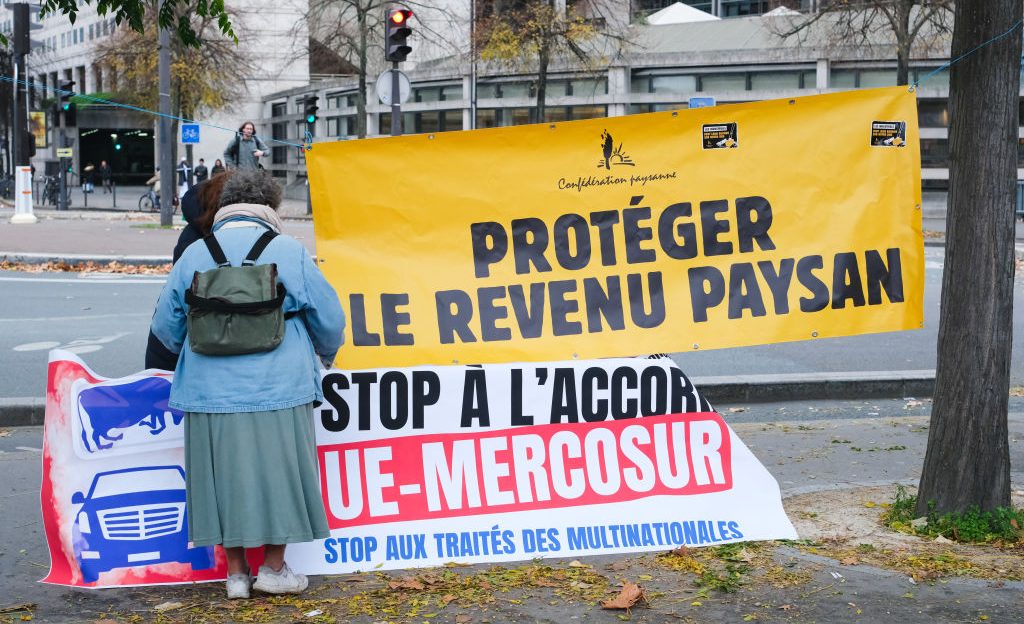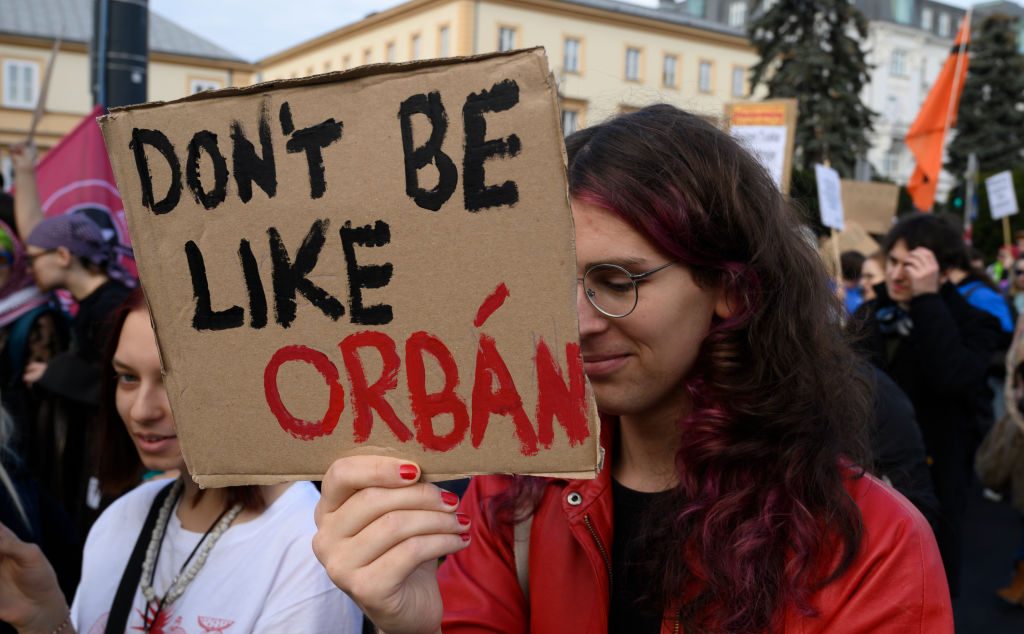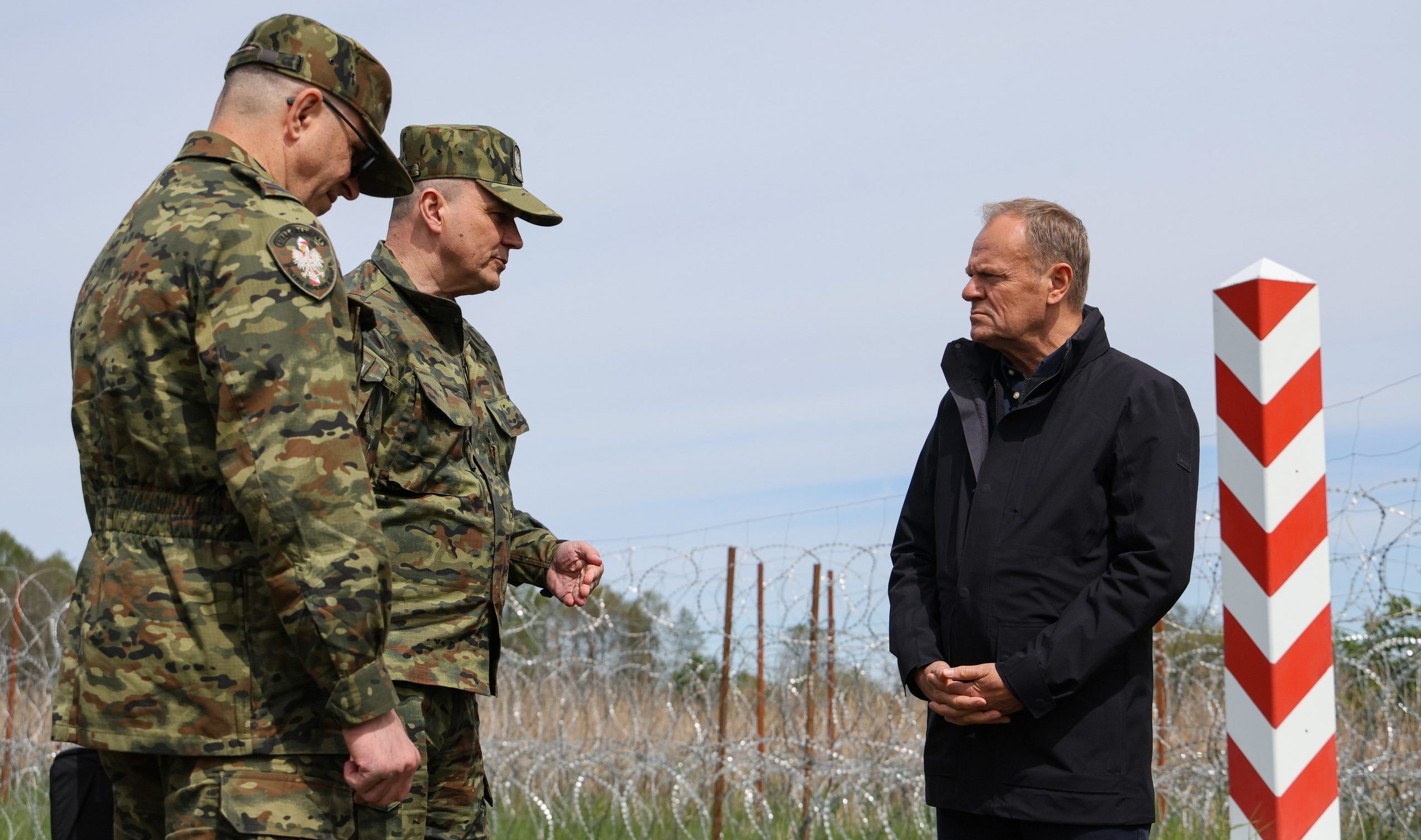 Euractiv is part of the Trust Project
Euractiv is part of the Trust Project
The Polish government and the French National Assembly have passed resolutions opposing the EU's trade deal with Mercosur, as farmers from both nations have voiced their opposition, which they say will lead to unfair competition for European agriculture.
Warsaw and Paris are working to gather a blocking minority within the EU to stall negotiations on establishing a free trade zone with Mercosur. They cite concerns over environmental standards and the protection of domestic agriculture.
At Tuesday's meeting, the Polish government adopted a resolution opposing the EU-Mercosur in its current form, highlighting opposition to certain provisions in particular.
“The government expresses its opposition to the current results of negotiations with Mercosur in the area of agriculture," in particular for poultry, the resolution reads, as quoted by Prime Minister Donald Tusk (PO, EPP).
The fate of the almost 25-year-long negotiations on the EU-Mercosur trade agreement is approaching a decisive moment, as the food industry has noted. This has significant implications for sectors such as Polish agriculture.
Negotiations are expected to be concluded by mid-December, setting the stage for the EU Council meeting on 18-20 December, where a final decision on the scope of the agreement is expected.
Under the recommendation of Defence Minister and Agriculture Minister Czesław Siekierski, both from the pro-agrarian Polish People's Party (PSL, EPP), the Polish government decided to adopt a resolution confirming that Poland is not prepared to accept the deal in its current form, said Tusk, noting that it is a political message from Warsaw that reflects the stance of other EU countries.
“Today, the government, at the request of PSL ministers, adopted a resolution expressing opposition to the proposed EU-Mercosur agreement. There is no consent to any initiatives that could hit consumers, agriculture and the economy,” Polish Deputy Prime Minister Kosiniak-Kamysz wrote on X.
In Poland, the move appears to be partly motivated by recent protests and pressure from the agricultural sector. In addition to the Polish meat industry sending a letter to Tusk in early November insisting that the deal could hit the beef and poultry sectors, Polish farmers and breeders have begun to take to the streets, with farmers blocking Poland's Medyka border crossing with Ukraine and planning an upcoming nationwide protest.
France cites pragmatism not dogmatism
Echoing Polish opposition, French MPs overwhelmingly voted against the deal in a non-binding vote on Tuesday. Farmers—who have been protesting against the deal before their Polish counterparts—have stepped up their protests across the country in recent days.
"The fact that Poland voted against Mercosur is fantastic news," said Agriculture Minister Annie Genevard from the podium of the National Assembly before the debates began.
“If we oppose this agreement, it is not out of dogmatism but out of pragmatism, and you will not find anyone who wants to prohibit agricultural agreements,” she stressed, noting that the deal “does not guarantee compliance with European standards or ensure fair competition for our farmers.”
"Let's use this platform to issue a final warning," she added, recalling that early last year, there had already been a "strong outcry" from the agricultural sector "from Brittany to the Carpathians".
Initially scheduled for 10 December, the vote was brought forward by 15 days amid fears that the agreement could be signed during the Mercosur summit scheduled for 5-7 December in Montevideo, Uruguay.
This vote now allows the French authorities to form a united front against the European Commission, which is keen to conclude the negotiations as quickly as possible.
On 12 November, more than 600 parliamentarians wrote to the President of the European Commission, Ursula von der Leyen, in an op-ed published in Le Monde. They argued that the Mercosur agreement posed “a substantial risk to agricultural supply security and food traceability in Europe” and denounced the project as “contrary to the climate and sustainability goals the EU has set for itself.”
“It is now essential that the French authorities fight to prevent the commercial part of the agreement from being split off, as they have so far been relatively quiet in Brussels,” said Marine Colli, a consultant and specialist in agricultural policy.
Divisions persist within the bloc
As negotiations on the trade deal continue, member states remain sharply divided.
While Austria has taken a cautious stance, stressing the need for stronger guarantees on rainforest protection, safeguards for sensitive products and support for affected farmers, Dutch Trade Minister Reinette Klever suggested last week that the agreement should not be reviewed until it is finalised.
Meanwhile, Luxembourg’s Prime Minister Xavier Bettel stopped short of endorsing the deal, highlighting that certain assurances are still lacking.
Germany, however, is pushing for the deal to be finalised. With elections looming next year following the collapse of Chancellor Olaf Scholz’s coalition, Berlin sees the deal as a key opportunity to strengthen its industrial base, particularly its automotive sector.
In its enthusiasm, Germany has found allies in Spain, Latvia and Sweden. But France appears determined to build a coalition to reject the deal.
“Faced with the prospect of ratification of this agreement, let's send a clear message to our partners: don't throw the match into the powder keg,” said France’s Genevard.
“The blast of such an explosion would travel across the continent, all the way to Brussels, and would cause a yawning rift between the Berlaymont and our countryside,” she added.
(Aleksandra Krzysztoszek | Euractiv.pl, Laurent Geslin | Euractiv.fr)

 euractiv.de
euractiv.de
 euractiv.fr
euractiv.fr
 euractiv.es
euractiv.es
 euractiv.it
euractiv.it
 euractiv.pl
euractiv.pl
 euractiv.bg
euractiv.bg
 euractiv.cz
euractiv.cz
 euractiv.gr
euractiv.gr
 euractiv.ro
euractiv.ro
 euractiv.sk
euractiv.sk





